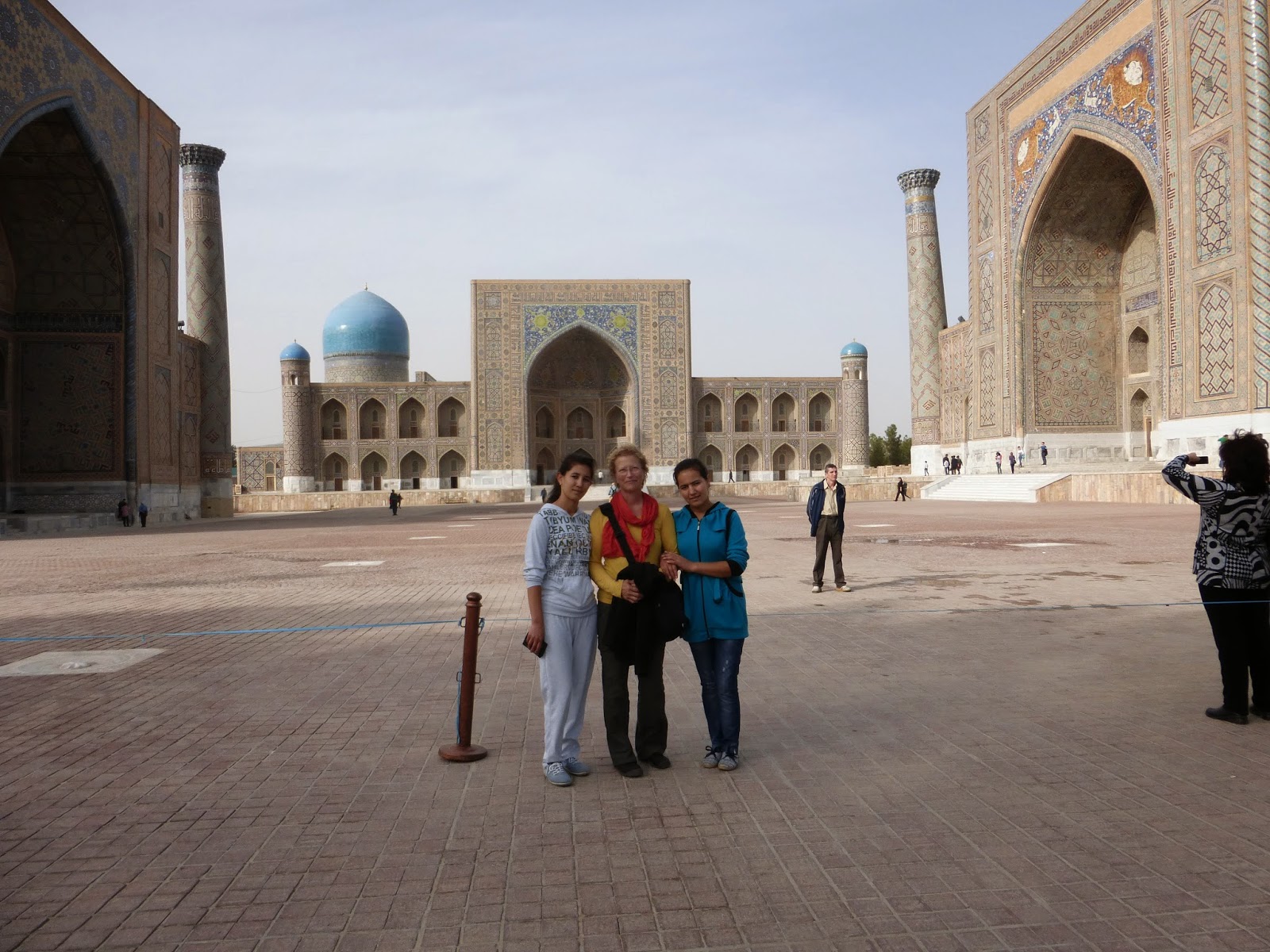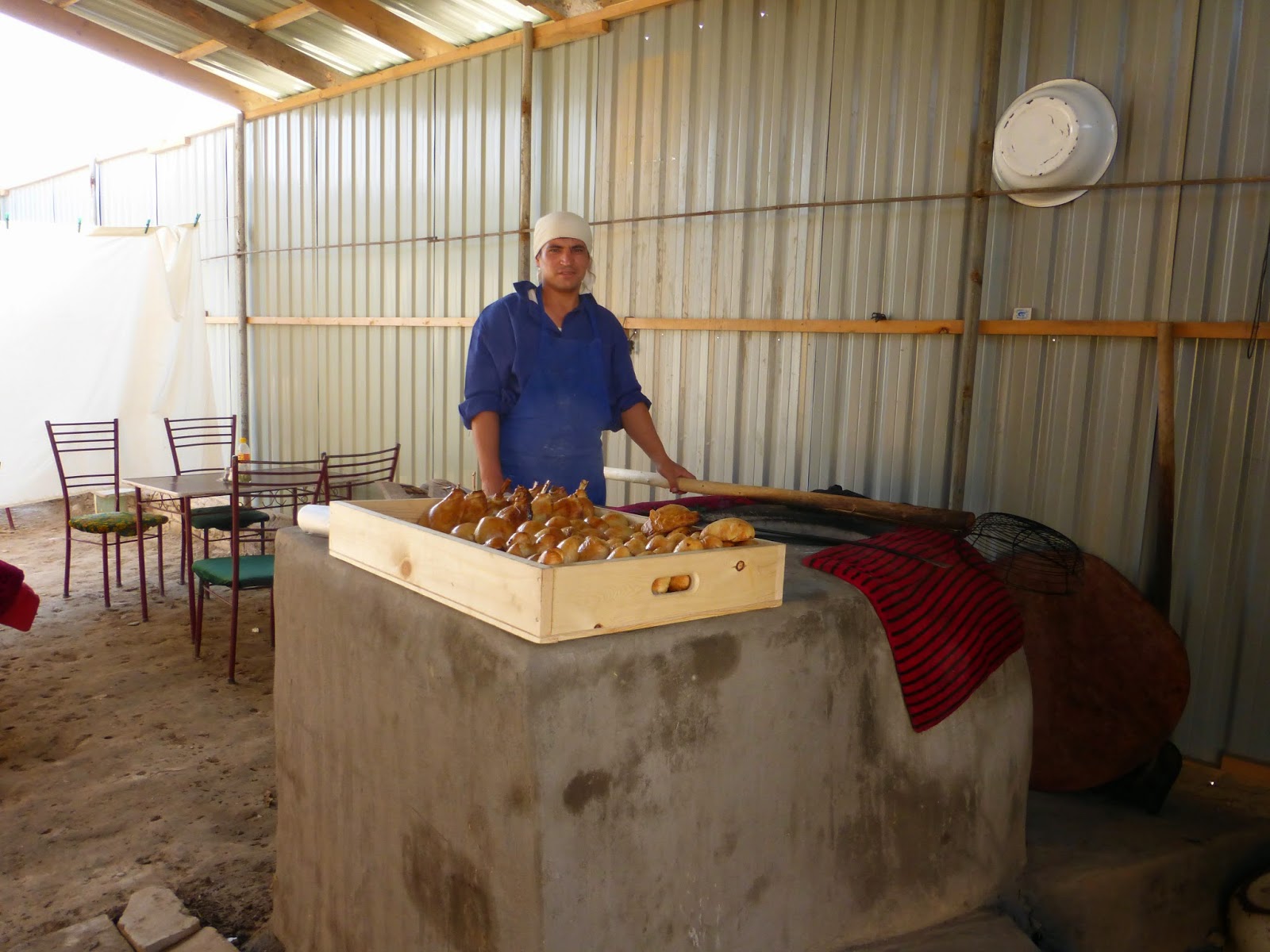As I left the train at Urumqi, I ran into a Kazak woman who had come to practice her English with me on the train. She was with another woman, Marina, who apparently travels for business. They were headed to a hotel that Marina had chosen, and Deena asked me if I wanted to go too, and share a taxi with them. I had planned to stay at another hotel, but I had no reservations and I figured, why not? It made the taxi process much easier, because Marina could communicate with the driver.
But the hotel ended up being a poor choice for me, for several reasons. It appears to be a business hotel that caters in particular to Kazak travelers, and it is not located close to the center of the city, which is where I wanted to be. They insisted on keeping my passport, which I did not like. I asked about internet, but no internet available in the hotel, other than in a little cafe, where you had to pay 10 Yuan for it. Next I asked for a map, so I could figure out how to get places. To be fair, I doubt their clientele usually goes walkabout in the city, they probably take a cab to any business meetings. But they had no map, and no suggestions about where to find one. I asked them to change some of my 100 Yuan notes, but even though they offer currency exchange, they would not do that either. It was not a happy relationship, short though it was.
I decided to go exploring anyway, and see if I could figure out how to get to the city centre.
Things started looking up immediately. Just by chance, I wandered down a street with some vendors just setting up for the day-steamed buns, nan and other food. The street was just beginning to come to life, children were just emerging onto the sidewalk, clearly part of their everyday living space.

I wanted to try a steamed bun of some sort but I was pretty sure my 100 Yuan note was not going to work for such a small purchase, so early in the day. I showed her the note, just as two guys walked up to buy some as well. One of them changed the note for me, and I bought my two buns for 1 Yuan, and happily munched as I walked. They were delicious. I know they had egg and some sort of greens in them, but not sure what seasoning. I came across a young Muslim boy working at an outdoor bakery of sorts, and bought a thing that looked a lot like a bagel from the stack in front of the shop. I tried very hard to keep track of how I went, so I could find my way home, going to far as to draw a simple map.
This process got me to the Ring Road, which I thought went round the city. Only the Ring Road isn't really quite a ring, and it has tendrils that spin off, leaving measure which is the Ring and which the false start. I found myself in a pulsing, neon, ultra modern downtown filled with high rise buildings and freeways, and all the crowds and chaos that go with any city. It was in some ways all cities everywhere.
There are exceptions, but generally I prefer small towns for this reason. Less uniformity, more character readily discovered as a general rule. The drawback to small towns is that they are not set up for tourists, especially those who do not know the local language.
Imagine someone who spoke only Russian and Kazak coming to Santa Rosa instead of San Francisco, or Morton, IL vs Chicago. It is just a lot easier to find people who can help you in the larger cities, they are easier to get to, and easier to get around in.
Ordinary people that I interact with give me the impression that they think I am a little crazy to be here without knowing the language. The guy who had changed my 100 Yuan note for me did not speak any English but he said something like "Russki, no English" and some other things I did not understand. I took him to be telling me that I should speak Russian, not English in order to be there. I would if I could.
There was a delightful discovery of a Uyghur market in the afternoon, filled with vegetables and everyday things, from knives to headscarves, piles of walnuts and various food vendors hawking their wares to the throngs of non-Han Chinese on their way home from work.
Alas, it was about 5 pm, and I did not relish the idea of finding my way home in the dark, so I commenced looking for the Ring Road. I knew the street name the hotel was on, and wonder of wonders, someone understood me! She said to catch the #10 bus, so that was what I did. Only I got off too soon, and ended up walking past some very smelly butcher shops- using the term 'shop' very loosely.The skins, freshly harvested, were piled on the ground outside, and there was a hole at the base of the rough adobe structure that allowed the offal to run out. Two men were sorting through that outside, and it was dirty, smelly work. It was about this time that I realized I surely had gone the wrong way.
So I tried to flag down a taxi, but no takers. I saw a line of cars across the street and it took me a few minutes to realize they were lined up to buy gas. Apparently gas is very hard to come by here. Often the stations do not have any to sell, and when they get some, the cars line up for blocks to buy it. There is a police officer with a gun standing at the entrance, and he regulates traffic into the station, and inspects the trunks of each incoming car. In fact, our hotel had a similar set up to get into the plaza where it was located. The cars have to stop for the officer, who may or may not inspect, and then once allowed in, they have to wind their way through a maze of road blocks designed to prevent a quick entry. There are police everywhere here.
Upon returning to the hotel, I looked at options for dinner. There was a restaurant in the hotel which turned out to be closed. I went out and walked around in the vicinity, and found a restaurant that was open. It had white tablecloths and there were some guests eating, it looked warm and inviting. And all at once, it just wasn't worth the effort. The weight of the day had accumulated on me. I went to the Metpo and bought a package of cookies and a Pepsi. I took them up to my unheated room, I wrapped up in the cover from the second bed, and read about Greek mythology. I fell asleep shortly thereafter with all the lights on. Thus ended my first day in China.


























